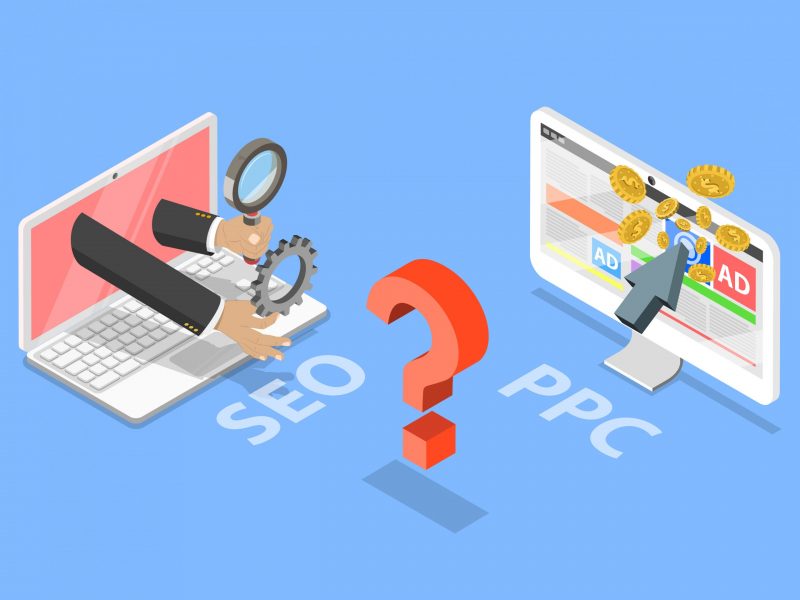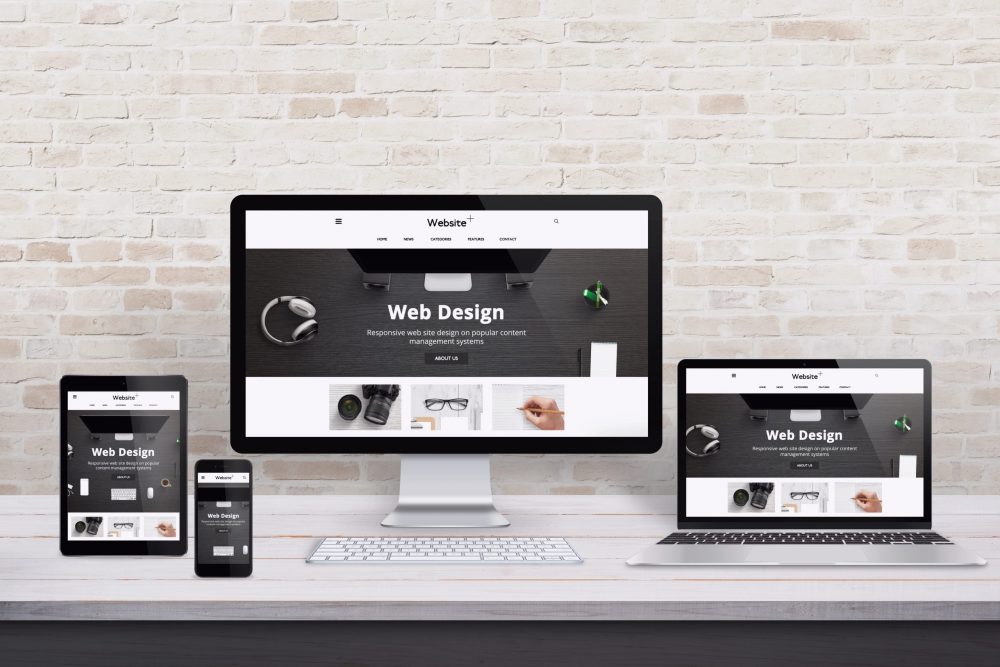In the ever-evolving digital landscape, businesses constantly seek the most effective strategies to enhance their online presence. Two of the most prominent methods are Search Engine Optimisation (SEO) and Pay-Per-Click (PPC) advertising. Each offers unique benefits and challenges, making the decision of SEO vs PPC crucial for any marketing plan. Understanding the intricacies of both can help you determine the best approach to meet your business goals.
Understanding SEO
Definition of SEO
Search Engine Optimisation (SEO) is a method aimed at improving a website’s visibility on search engine results pages (SERPs). By optimising various aspects of a website, businesses can achieve higher rankings on search engines like Google, driving more organic traffic to their site. SEO encompasses a range of techniques, from keyword research to content creation, all focused on making a site more attractive to search engines.
How SEO Works
SEO works by aligning a website’s content and structure with the algorithms used by search engines. These algorithms consider factors such as keyword relevance, site architecture, and user experience. Effective SEO practices involve both on-page and off-page strategies. On-page SEO includes optimising individual web pages, while off-page SEO involves activities like link-building and social media engagement.
Benefits of SEO
One of the primary benefits of SEO is its ability to attract high-quality, organic traffic without the need for ongoing ad spend. This traffic is often more sustainable in the long term, as high-ranking pages can continue to attract visitors long after the initial optimisation efforts. Additionally, SEO can enhance the user experience by improving site structure and content relevance, leading to higher engagement and conversion rates.
Challenges of SEO
Despite its benefits, SEO also presents several challenges. Achieving and maintaining high search engine rankings can be time-consuming and requires continuous effort and adaptation to changing algorithms. Moreover, SEO results are not immediate; it can take months to see significant improvements in rankings and traffic. The competitive nature of search engine rankings means that businesses must constantly refine their strategies to stay ahead.
On-Page SEO
On-page SEO focuses on optimising the content and structure of individual web pages. This includes using relevant keywords, creating high-quality content, and ensuring that meta tags, headers, and URLs are properly formatted. Other important aspects of on-page SEO include improving page load speed, mobile-friendliness, and overall user experience.
Off-Page SEO
Off-page SEO involves activities outside of the website that can impact its rankings. The most common off-page SEO technique is link building, which involves acquiring backlinks from other reputable sites. Social media marketing and online reputation management also play crucial roles in off-page SEO by driving traffic and enhancing a website’s authority and credibility.
Technical SEO
Technical SEO addresses the backend aspects of a website that affect its search engine performance. This includes optimising site speed, ensuring mobile compatibility, and improving crawlability and indexability by search engines. Technical SEO also involves implementing structured data and improving site architecture to enhance navigation and user experience.
Local SEO
Local SEO is essential for businesses that operate in specific geographic areas. It involves optimising a website to rank well for location-based searches. Techniques include creating and optimising Google My Business listings, obtaining local citations, and encouraging customer reviews. Local SEO helps businesses attract customers from their immediate vicinity, making it a vital strategy for local businesses.
Mobile SEO
With the increasing use of mobile devices for internet browsing, mobile SEO has become crucial. It focuses on ensuring that a website performs well on mobile devices. Key factors include responsive design, fast loading times, and easy navigation on smaller screens. Google’s mobile-first indexing means that mobile SEO is now a critical component of overall SEO strategy.
Understanding PPC
Definition of PPC
Pay-Per-Click (PPC) advertising is a model of internet marketing where advertisers pay a fee each time one of their ads is clicked. Essentially, it’s a way of buying visits to your site rather than attempting to earn them organically. PPC ads appear on search engine results pages, social media platforms, and other websites, targeting users based on keywords, demographics, and other criteria.
How PPC Works
PPC works by bidding on keywords relevant to your business. When users enter these keywords into a search engine, your ad may appear in the sponsored section of the search results. If a user clicks on your ad, you pay a fee based on your bid and the competitiveness of the keyword. Effective PPC campaigns require thorough keyword research, compelling ad copy, and strategic bidding to maximise ROI.
Benefits of PPC
The most significant benefit of PPC is the immediacy of results. Unlike SEO, which can take months to show impact, PPC campaigns can drive traffic almost instantly. PPC also offers precise targeting options, allowing businesses to reach specific demographics, locations, and user behaviours. Additionally, PPC provides measurable results, with detailed analytics to track the performance and ROI of each campaign.
Challenges of PPC
However, PPC also comes with challenges. The cost of PPC can be high, especially in competitive industries where keyword bids are steep. Managing a PPC campaign effectively requires continuous monitoring and optimisation to avoid overspending and ensure the highest possible ROI. Moreover, the traffic from PPC stops once you stop paying, unlike the more sustainable traffic from SEO.
Types of PPC Ads
PPC advertising encompasses various types of ads, including search ads, display ads, social media ads, and video ads. Search ads appear on search engine results pages, display ads are shown on websites within the Google Display Network, and social media ads appear on platforms like Facebook and Instagram. Video ads are often used on platforms like YouTube to engage users with visual content.
Keyword Research in PPC
Keyword research is crucial for PPC success. It involves identifying the most relevant and cost-effective keywords for your business. Tools like Google Keyword Planner can help you find keywords with high search volume and low competition. Effective keyword research ensures that your ads reach the right audience and achieve maximum visibility.
Ad Copywriting Tips
Compelling ad copy is essential for attracting clicks and driving conversions in PPC campaigns. The ad copy should be clear, concise, and relevant to the keywords being targeted. Including a strong call to action and highlighting unique selling points can increase the effectiveness of your ads. Regularly testing different ad copies can help you determine what resonates best with your audience.
PPC Budget Management
Effective budget management is critical in PPC advertising. Setting a daily or monthly budget helps control costs and ensures that you don’t overspend. It’s also important to monitor your campaign’s performance and adjust bids based on the ROI of different keywords. Using automated bidding strategies can help optimise your budget for maximum results.
SEO vs PPC: Cost Comparison
Long-term Costs
When comparing SEO vs PPC, it’s essential to consider long-term costs. SEO often requires a significant upfront investment in content creation, website optimisation, and link-building. However, once high rankings are achieved, the ongoing costs are relatively low, and the traffic continues without additional spending.
Short-term Costs
In contrast, PPC has higher short-term costs due to the pay-per-click model. Every click comes with a fee, and the costs can add up quickly, especially for competitive keywords. However, PPC’s ability to drive immediate traffic can justify these costs if the campaigns are well-managed and result in high conversions.
SEO vs PPC: Traffic Quality
Organic Traffic Quality
SEO typically generates high-quality traffic as users who click on organic search results are actively seeking information related to their queries. This often leads to higher engagement and conversion rates, as the content matches their intent.
Paid Traffic Quality
PPC traffic quality can also be high if the ads are well-targeted and relevant to user queries. However, because users know they are clicking on ads, they may be more cautious, potentially leading to lower trust and conversion rates compared to organic traffic.
SEO vs PPC: Conversion Rates
SEO Conversion Rates
SEO can achieve high conversion rates due to the targeted nature of organic traffic. Users are more likely to trust and engage with websites that rank well organically, leading to higher conversions.
PPC Conversion Rates
PPC conversion rates can vary widely based on the quality of the ad and the landing page. While PPC offers precise targeting, it often requires continuous optimisation to maintain high conversion rates.
SEO vs PPC: Time to Results
Timeframe for SEO Results
SEO is a long-term strategy. It can take several months to see significant improvements in rankings and traffic. The time required depends on the competitiveness of the industry and the effectiveness of the SEO strategies implemented.
Timeframe for PPC Results
PPC delivers immediate results. Once a campaign is launched, ads can start driving traffic within hours. This makes PPC an excellent choice for businesses needing quick visibility and traffic boosts.
SEO vs PPC: Long-term vs Short-term
Sustainability of SEO
SEO offers sustainable benefits. Once high rankings are achieved, they can be maintained with minimal ongoing effort. The organic traffic generated by SEO can continue to flow long after the initial investment.
Sustainability of PPC
PPC is less sustainable in the long term because it requires continuous investment. The traffic stops as soon as the ad spend is paused, making it less suitable for businesses looking for long-term traffic solutions.
SEO vs PPC: Flexibility and Control
Customising SEO Strategies
SEO strategies offer a high degree of customisation. Businesses can tailor their content, keywords, and technical optimisations to meet specific goals. However, it requires a deep understanding of search engine algorithms and user behaviour.
Customising PPC Campaigns
PPC campaigns provide precise control over targeting, budget, and ad placements. This flexibility allows businesses to adjust their strategies quickly based on performance data. PPC platforms offer various tools to refine targeting and optimise bids for better results.
When to Use SEO
Best Scenarios for SEO
SEO is ideal for businesses seeking long-term growth and sustainability. It’s particularly effective for companies with a content-rich website that can attract organic traffic over time. SEO is also beneficial for building brand authority and trust.
When to Use PPC
Best Scenarios for PPC
PPC is best suited for businesses needing immediate visibility and quick results. It’s ideal for launching new products, seasonal promotions, and targeting competitive keywords where organic ranking is challenging. PPC is also effective for highly targeted campaigns where precise audience segmentation is required.
Combining SEO and PPC
Integrated Marketing Strategies
Combining SEO and PPC can create a robust and comprehensive marketing strategy. SEO can provide sustainable organic traffic, while PPC can offer immediate boosts when needed. This integrated approach allows businesses to leverage the strengths of both methods for maximum visibility and engagement.
Benefits of Combining SEO and PPC
The synergy between SEO and PPC can lead to enhanced overall performance. PPC data can inform SEO strategies by identifying high-converting keywords, while SEO can improve the quality score of PPC ads by enhancing the website’s relevance and authority. Together, they can provide a balanced and effective approach to digital marketing.
Real-world Examples of SEO Success
Case Studies
Numerous businesses have seen remarkable success with SEO. For instance, a leading e-commerce site increased its organic traffic by 200% through targeted keyword optimisation and content marketing. Another example is a local service provider who boosted their visibility and customer base by optimising their Google My Business listing and acquiring positive customer reviews.
Real-world Examples of PPC Success
Case Studies
PPC has also driven significant results for many companies. A software company, for instance, achieved a 150% increase in leads by using targeted Google Ads campaigns. Similarly, an online retailer saw a 300% ROI from their Facebook Ads campaign by leveraging precise demographic targeting and compelling ad creatives.
Common Mistakes to Avoid
SEO Mistakes
One of the most common SEO mistakes is neglecting on-page optimisation, such as missing meta tags and poor keyword usage. Another mistake is failing to create high-quality, relevant content, which can hinder search engine rankings. Additionally, ignoring mobile optimisation and site speed can negatively impact SEO performance.
PPC Mistakes
In PPC, common mistakes include bidding on overly broad keywords, leading to irrelevant traffic and wasted budget. Poor ad copy that fails to capture user interest can also reduce click-through rates. Additionally, neglecting to monitor and adjust campaigns regularly can result in suboptimal performance and higher costs.
Future Trends in SEO
Emerging SEO Trends
The future of SEO is likely to be shaped by advancements in artificial intelligence and machine learning, which will further refine search engine algorithms. Voice search optimisation and the increasing importance of mobile-first indexing will also influence SEO strategies. Additionally, the focus on user experience and high-quality content will continue to be paramount.
Future Trends in PPC
Emerging PPC Trends
PPC trends are expected to include greater automation and the use of AI to optimise bidding and targeting strategies. The rise of visual and video ads, particularly on platforms like YouTube and Instagram, will become more prominent. Additionally, personalised ad experiences based on user data and behaviour will drive more effective PPC campaigns.
FAQs
What is the primary difference between SEO and PPC? The main difference between SEO and PPC is that SEO focuses on organic search results and improving a website’s visibility without paying for ads, while PPC involves paying for ads to appear in search engine results and other online platforms.
Which is better for long-term growth, SEO or PPC? SEO is generally better for long-term growth because it provides sustainable organic traffic and builds brand authority. PPC can be effective in the short term but requires continuous investment.
Can SEO and PPC be used together? Yes, SEO and PPC can be used together to create a comprehensive marketing strategy. Combining both methods allows businesses to leverage the strengths of each and achieve better overall results.
How long does it take to see results from SEO? SEO results typically take several months to become apparent. The exact timeframe depends on various factors, including the competitiveness of the industry, the quality of the SEO strategies implemented, and the current state of the website.
Is PPC suitable for small businesses? PPC can be suitable for small businesses, especially those looking for immediate visibility and quick results. However, it’s important to manage the budget carefully to avoid overspending and ensure a good return on investment.
How can I measure the effectiveness of my SEO and PPC campaigns? The effectiveness of SEO can be measured through metrics such as organic traffic, search engine rankings, and conversion rates. PPC effectiveness can be evaluated using metrics like click-through rates, cost per click, and overall ROI. Tools like Google Analytics and Google Ads provide detailed insights into both SEO and PPC performance.
Conclusion
In the debate of SEO vs PPC, the right choice depends on your business goals, budget, and timeframe. SEO offers sustainable, long-term benefits and builds organic traffic and authority. PPC, on the other hand, provides immediate visibility and precise targeting for quick results. Combining both strategies can create a powerful, integrated approach to digital marketing, ensuring you harness the strengths of each to achieve your business objectives. Whether you prioritise the lasting impact of SEO or the immediate reach of PPC, understanding their unique advantages and challenges is key to making an informed decision.













